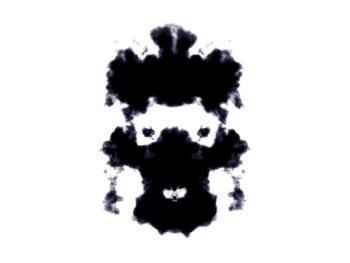
A brief review of interesting new findings on suicidality and depression treatment in youths.

A brief review of interesting new findings on suicidality and depression treatment in youths.

A mother recalls seeing a donation box with a photo of a little boy with leukemia in a grocery store checkout line but never one of a child with serious mental illness. How can this be if twice as many children and young people die from suicide than those who die of all cancers combined? More in this commentary.

Fifty Shrinks allows us to see ourselves through the sensitive eyes of a colleague and artist.

Clinical applications for the most commonly used anticonvulsants are reviewed here, along with complications and recent findings for day-to-day practice. Also: an update on findings from research on anticonvulsants used less often, but which may be potentially beneficial.

Given the greater frequency of depression than manic episodes in bipolar disorder, what clues indicate bipolar disorder rather than unipolar depression?

This exchange follows what began with Dr Richard Noll’s article, “Speak, Memory” and the “repressed recovered memory/multiple personality disorder” iatrogenic epidemic of the late 1980s and 1990s.

In a world in which substance use disorders are no longer suffered in isolation, treating addiction is a challenging journey with obstacles, intermittent failures, and life-altering successes. A poem on drug withdrawal expressed through the eyes of a fellow in addiction medicine.

The elephant in the room: the problem of iatrogenic opioid use disorder is being ignored.

Are patients with schizophrenia better off without antipsychotics? Here: a point/counterpoint.

The SSRIs, although principally targeting serotonin transporter, are complex drugs that might work on other neurotransmitter and receptor systems. It is likely worthwhile to look at the effects of other monoamine and neuropeptide systems on the enzymatic machinery cleaving the amyloid precursor protein.

The recent 2014 Joint Report of the Treatment Advocacy Center and the National Sheriffs’ Association could have been a most useful and timely report on the woefully inadequate access to appropriate levels of mental health services for incarcerated seriously mentally ill persons. This author believes the report will only make the problem worse.

While we still have our good mornings-whether in Vietnam or elsewhere-we must forever say good night to Robin Williams and to thank him for all the good times.

Suicide is a pervasive public health issue for adolescents in Hawaii. In response, a youth leadership model was initiated to empower young leaders in suicide prevention through evidence-based training, relationship building, and community awareness.

The institutions of yesterday were overcrowded, noisy, and often had a distinctive odor. Patients were neglected and mistreated. Yet those problems have been replaced with a different set. More in this commentary.

What is your first impression of this image and why?

It is essential that we psychiatrists align ourselves with the public and our patients both to disseminate accurate information and to educate. Social media allows us to have this public voice more than ever before.

The MDQ, developed by Dr Robert M.A. Hirschfeld and colleagues, is a screening instrument for bipolar disorder. It includes 13 yes/no questions about bipolar symptoms and two additional questions about symptom co-occurrence and impaired functioning.

Minorities remain less likely to receive diagnosis and treatment for their mental illness and more likely to die by suicide. As ethnocultural diversity within the US grows, psychiatrists are increasingly evaluating attitudes, beliefs, and behaviors of a broad spectrum of ethnocultural groups.

Most patients with psychiatric diagnoses present with sleep disturbances that can have as great an impact on health-related quality of life as the mental illness itself. Here are tips on treatment and chronotherapeutic applications for major depression and other disorders.

What psychological factors may lurk beneath endorsement of or opposition to the death penalty? This author speculates.

In psychiatry, we do not complete physical exams; much of our diagnosis is born out of our observations, interviews, and conversations. Other medical fields, particularly surgery, require manual, technical, and motor skills. In this manner, psychiatry is unique. More in this commentary.

What is the future of psychiatric assessment and treatment of mood disorders? The articles in this Special Report explore some important aspects and issues.

An update on the diagnosis, causation, and treatment of chronic depressive problems. The focus is on the recently introduced diagnostic category of persistent depressive disorder.

Here: the history of psychotic depression for the Study of the Pharmacotherapy of Psychotic Depression (STOP-PD), a summary its epidemiology, significance, diagnostic complexity, and treatment, as well as case vignettes.

This article reviews the most recent (after 2010) published guidelines on bipolar depression.

Most, if not all, antidepressants can cause bothersome adverse effects. These are described here along with strategies to help patients cope.

To some extent, humiliation is part and parcel of the human experience. Some make the case that minor experiences can be psychologically beneficial. The important challenge for mental health professionals to help patients understand and reduce humiliation.

This book is the first scholarly work that attempts to fill the enormous gap in the conventional armamentarium used to treat PTSD.

Epidemiological research has shown that the Māori people of New Zealand are approximately twice as likely to have serious psychiatric illness compared with non-Māori. Here, a child and adolescent psychiatrist describes her work in Aotearoa, New Zealand.

The limited effectiveness of current approaches provide compelling arguments for effective conventional and complementary interventions aimed at preventing PTSD and treating chronic PTSD. Specifics here.